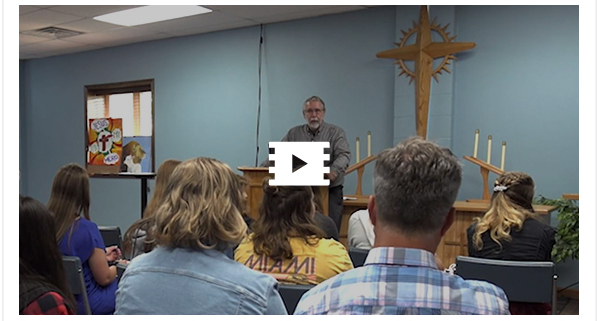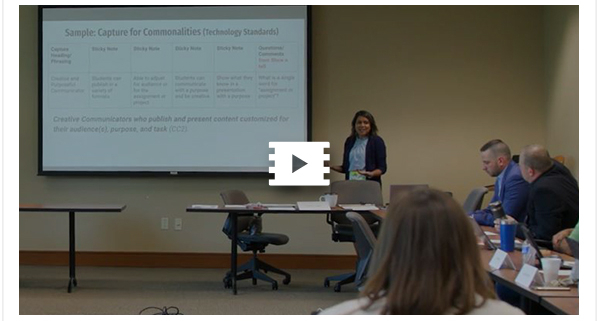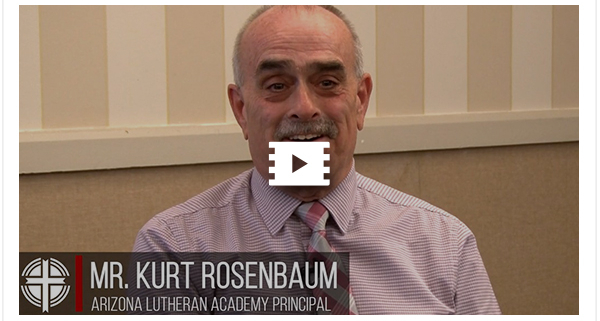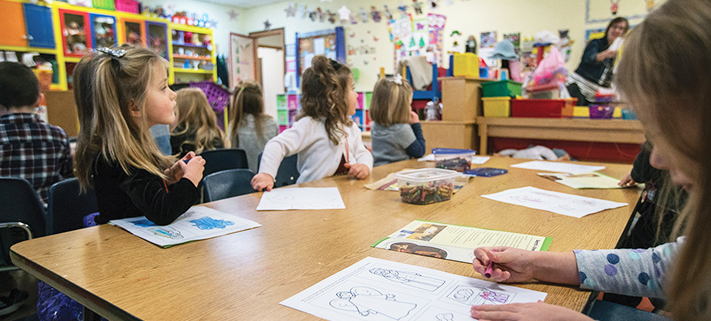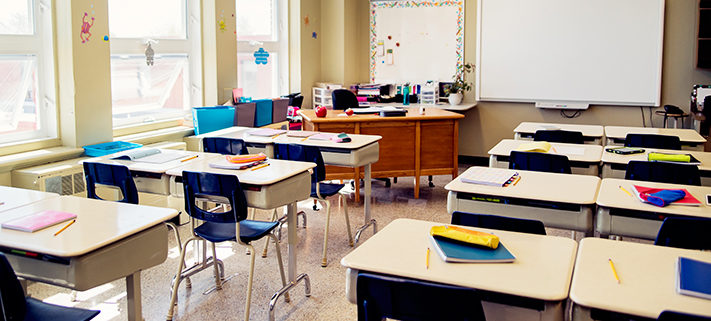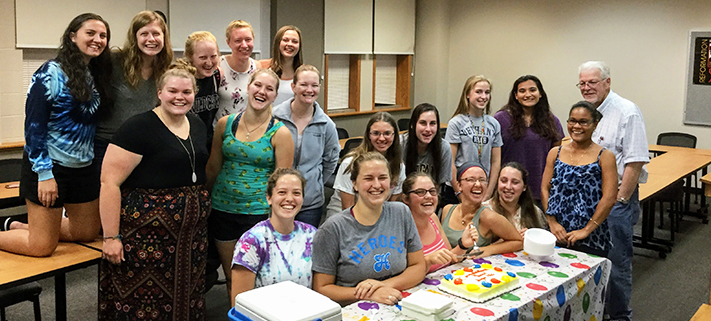WELS schools around the country were faced with the difficult job this summer of determining what school is going to look like in the fall, after the 2019–20 school year ended with online classes because of shutdowns due to the pandemic.
With 436 WELS schools serving over 42,000 students in 33 states—some with minimal numbers of COVID-19 cases and some considered “hot spots”—plans will differ across the country. But one thing is sure: “Sept. 1, 2020, is going to look different than Sept. 1, 2019, in every single one of our schools,” says Mr. James Rademan, director of the Commission on Lutheran Schools (CLS).
While each plan will look different—with schools talking about in-person vs. virtual learning (or a combination of the two), face coverings, size of classes, social distancing, extracurriculars, disinfecting stations, and additional cleaning—Rademan says that the mindset he has seen from WELS schools as they determine how to proceed is remarkably similar: “Each one of the schools is really concerned about the safety of their students and their staff while trying to balance what is going to be best overall for the development of the children.”
Most WELS schools—including Kettle Moraine Lutheran High School (KML), Jackson, Wis. and Arizona Lutheran Academy (ALA), Phoenix, Ariz.—are planning to start the year meeting face-to-face at school. “Christian education is way more than just teaching in the classrooms,” says Mr. Jamie Luehring, principal at Kettle Moraine. “It’s the interactions the teachers have with the students, the mentorships, the friendships, the support. You cannot do that as well virtually no matter how hard you try.”
That decision to start with in-person classes was not made in a vacuum. For both schools, it meant sending out a survey to parents and meeting with teachers during the summer to get opinions on the best options moving forward. “We believe parents need to be in the driver’s seat,” says Luehring. “We want to work with them to come up with the best solutions for their kids.”
But the collaboration went even further. Mr. Kurt Rosenbaum, principal at ALA, said that when their school’s task force began meeting in June, they looked closely at recommendations for reopening sent out by the Arizona Department of Education. He is in constant contact with the local health department to keep up with the latest health regulations. Representatives from all 26 WELS area Lutheran high schools and the two synod prep schools also met virtually multiple times this summer to offer ideas, support, encouragement, and prayers for one another as they determined the best plans for their schools.
For both ALA and KML, the majority of the parents supported in-person classes, “but we knew that there would be some families who would want to start slowly,” says Rosenbaum. To support those students and families, both schools are offering online classes as well. “We’re trying to be all things for all people,” says Luehring. “We understand everyone is in a different situation and we don’t want to lose those kids for the sake of the gospel.” Online classes will also offer an option for international students who may not be able to get back to campuses for the start of the school year.
“There are so many people with differing opinions; there needs to be a loving response to one another,” says Luehring. “As a loving Christian family, we are going to try to work through this together.”
In the end, “flexibility” may be the key word. “Most schools are developing two or three plans and are recognizing the need to be able to pivot based on the circumstances,” says Rademan. The Commission on Lutheran Schools is offering support, encouragement, and direction to WELS schools, while not prescribing any one direction. “We are encouraging them to follow CDC and local health department guidelines and to work with the resources in their community and the schools that are in close proximity to them,” says Rademan.
Some schools in “hot spot” locations—such as southern California—may have no choice but to start virtually. “You can plan and plan and plan, but you don’t know what will happen three days before school starts,” says Rademan. “It’s a time to use the gifts the Lord has given us and trust in the Lord. The path is going to be the path he’s seeking for us to take at this time.”
Available resources from CLS can be found at cls.welsrc.net/
CLS partners with Christian Family Solutions
With anxiety and other mental health issues on the rise during the pandemic, the Commission on Lutheran Schools is working closely with Christian Family Solutions to offer resources, support, and counseling to teachers and students. Webinars and other materials will look to help teachers deal with their own anxiety as well as the anxiety they will see in students and parents. Christian Family Solutions also works with many WELS schools to offer tele-health counseling for students struggling with mental health needs.

